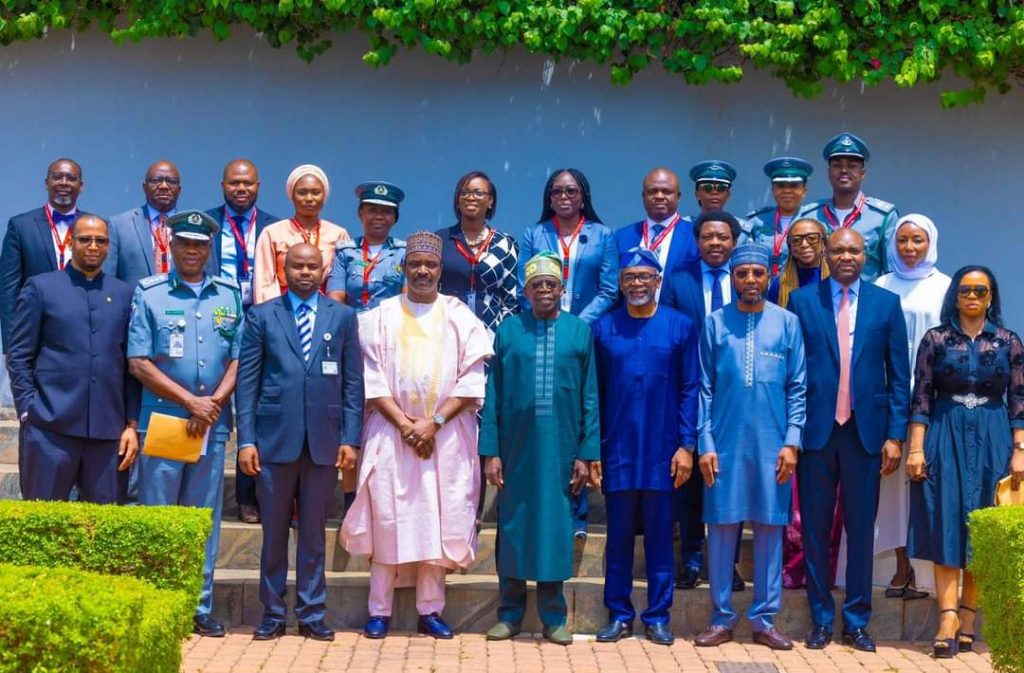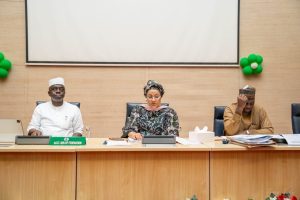By Ikugbadi Oluwasegun
The Federal Government has inaugurated the National Single Window Steering Committee, with the Nigeria Customs Service (NCS) serving as a key member, In a bid to enhance trade facilitation and efficiency within the nation’s import and export value chain.

The launch took place at the Presidential Villa Abuja on Tuesday, with President Bola Tinubu presiding over the inauguration.
The Committee is composed of representatives from key federal ministries and agencies, including the Ministry of Finance, the Marine and Blue Economy, Transportation, Trade and Investment, as well as the Federal Inland Revenue Service. Other agencies involved are the Nigeria Sovereign Investment Authority (NSIA), the Central Bank of Nigeria, the National Agency for Food and Drug Administration and Control (NAFDAC), the Standards Organization of Nigeria, and the Nigerian Maritime Administration and Safety Agency (NIMASA).
The Nigerian Customs Service is playing a crucial role in the effort, given its direct involvement in trade facilitation and border security.
The newly established committee will oversee the implementation of the National Single Window project, a real-time digital trade compliance system aimed at modernising and streamlining trade processes.
The project is expected to facilitate paperless trade and provide an annual economic benefit of around $2.7 billion, contributing to national revenue and improving port efficiency.
President Tinubu emphasised the importance of the initiative. He said, “Nigeria cannot afford to lose an estimated $4 billion annually due to bureaucratic delays, red tape, and corruption at the nation’s ports. By embracing the single window system, Nigeria hopes to join countries like Singapore, Korea, Kenya, and Saudi Arabia that have already experienced significant improvements in trade efficiency,” he stated.
The Nigeria Customs Service supports the initiative as it aligns with the service’s goal of enhancing trade facilitation and national security.
NCS’s involvement will ensure the successful implementation of the project, helping to expedite cargo movement and optimise inter-African trade.
The initiative is seen as a bold statement of the government’s commitment to progress, prosperity, and the well-being of all Nigerians. It represents a significant step towards regional integration and collaboration, ultimately contributing to a better future for the country.

























